Subscriber Benefit
As a subscriber you can listen to articles at work, in the car, or while you work out. Subscribe NowA new service from the Indiana State Bar Association puts training and resources in one place for attorneys to learn more about pro bono representation and hopefully clear the hurdles that can sometimes stand in their way.
The Indiana Pro Bono Academy and Resource Center is meant to be a one-stop shop for attorneys, paralegals and staff.
On-demand continuing legal education options include how to work with non-English speakers, the basics of family immigration law, tenant rights for domestic violence survivors and dementia-informed advocacy.
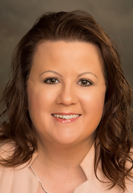
There are also links to pro bono opportunities and information about malpractice insurance.
ISBA President Amy Noe Dudas said the goal for the academy is to “enhance the culture of pro bono in Indiana.”
The bar association’s Pro Bono Committee and Leadership Development Academy put the resource together. Every Leadership Development Academy has a “class project,” Dudas said, and this was Class 10’s project.
Dudas said it’s true in Indiana, and across the country, that there aren’t enough attorneys doing work in areas of the law where people have needs but can’t afford a lawyer.
It’s difficult to quantify the shortage of pro bono representation, she said, but she hears about it from judges who tell her about people in court who don’t have an attorney and would be well served by one.
And there are pro bono partners throughout the state who match parties with pro bono attorneys but don’t have enough lawyers volunteering, Dudas added.
The online resource is meant to serve two main purposes. Aside from offering an entry point to pro bono services, it focuses on the areas of law where those services are most needed.
Often, Dudas said, those are the areas where lawyers “have a hard time feeling confident.”
An ‘army’
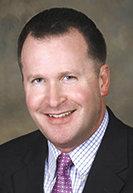
Scott Wylie, executive director of Pro Bono Indiana, said the academy will help support his organization’s work. The academy is “an amazing idea,” he said.
Wylie made the analogy to an army, where Pro Bono Indiana, as an organization that coordinates pro bono work, is the general in the field.
“It gives us the ability to have a larger number of people in the army and have them be better trained,” he said.
Wylie used as an example a new attorney who may approach him and say they’re looking to get more experience in court, and Wylie could say how desperate they are for help on eviction cases.
But that attorney may very well respond by saying they have no idea how that works, Wylie said. Now, with the academy, he said he can point them in the right direction to get them up to speed.
Like Dudas, Wylie said intimidation and a feeling attorneys might have that they aren’t qualified to practice in areas such as evictions or immigration are barriers for some attorneys to doing pro bono work.
Lots of attorneys get into banking and real estate, Wylie said, but, as he quipped, “Poor people don’t need help with mergers and acquisitions.”
The Indiana Pro Bono Academy and Resource Center is meant to give attorneys the confidence they need, Dudas said.
She said there are plenty of organizations that can match attorneys with clients and offer referrals, but it’s common to hear attorneys say they want to help but just don’t know where to start.
The academy’s role in the world of pro bono representation, Dudas said, is giving lawyers that starting point.
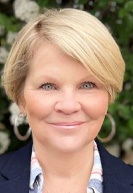
Kerry Hyatt Bennett, chief legal counsel at the Indiana Coalition Against Domestic Violence, said it’s understandable that attorneys feel they aren’t qualified to give pro bono representation in certain situations.
“There are times where I want to do something pro bono,” she said on a recent episode of the Indiana Lawyer Podcast, “like one time I signed up for the Indianapolis Bar Association’s program on providing wills and estate documents to low-income individuals — completely out of my area. I was like, ‘I have no idea what I’m doing.’”
Bennett said that feeling can be especially daunting when it comes to representing domestic violence survivors. That’s what makes training so important, she said.
“That’s one of the reasons we hold hands, we mentor,” she said.
Bennett will give a presentation during a CLE event July 12, sponsored by the U.S. District Court for the Southern District of Indiana, to increase attorney awareness and participation in the coalition’s Satellite Attorney Program, which provides representation to victims of domestic violence.
‘There’s always a huge need for attorneys’
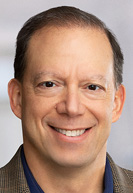
Jason Bernstein, a partner at Barnes & Thornburg LLP in Atlanta, said most midsized and large firms are trying to do more pro bono work.
Barnes & Thornburg, for example, expects attorneys and paralegals to give at least 50 hours of pro bono service per year, which is separate from individual volunteer and board involvement.
The firm gives billable hour credit to associates for up to 50 hours of approved legal pro bono work and bonus compensation for staff attorneys and paralegals.
Still, Bernstein, who is vice chair of Barnes & Thornburg’s Pro Bono Committee, said there will always be more work than there are attorneys.
“There’s always a huge need for attorneys,” he said.
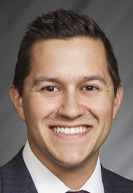
Thomas Payne, a labor and employment attorney in the firm’s Indianapolis office, said he’s done some litigation at the Indiana Southern District Court in Indianapolis. There’s a big need for help with prisoner litigation, he said. He also occasionally represents nonprofits and individual people when they reach out for help.
Payne said he keeps up to date with updates from the federal court for pro bono opportunities.
He’s also been involved in an ask-a-lawyer program, which he said has taken him out of his comfort zone because there’s no telling what someone will need help with. But one of the best ways to get comfortable, he said, is by simply doing it.
“No lawyer in the world is going to be prepared to answer every question that comes your way,” Payne said.•
Please enable JavaScript to view this content.

